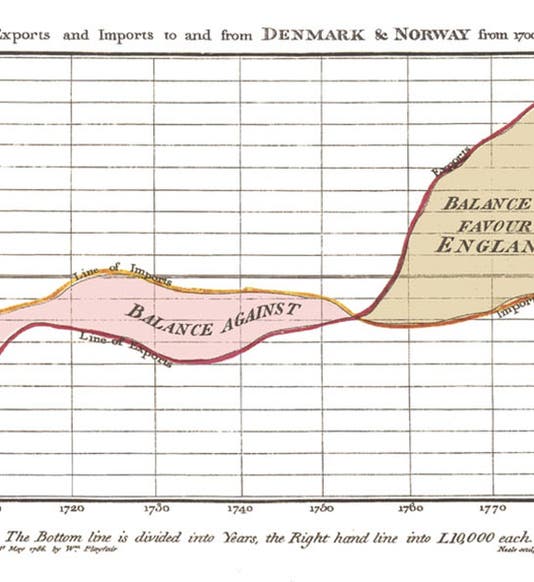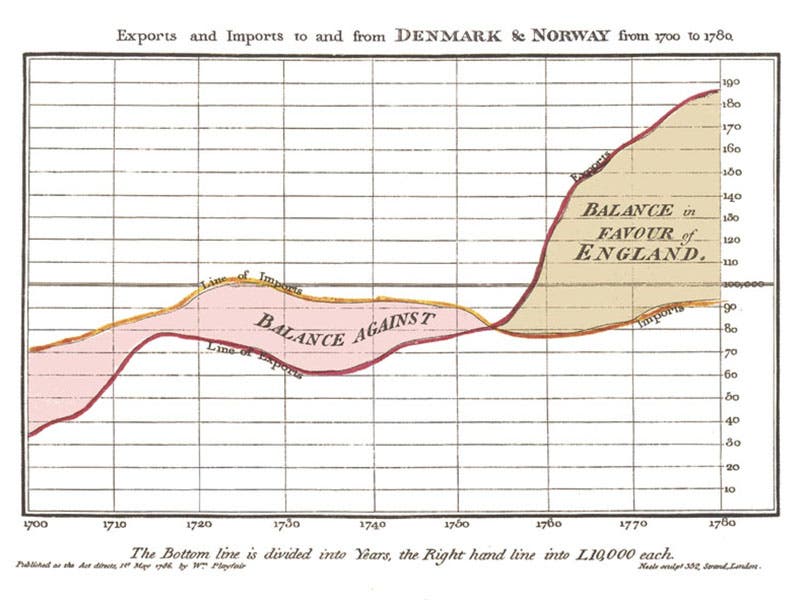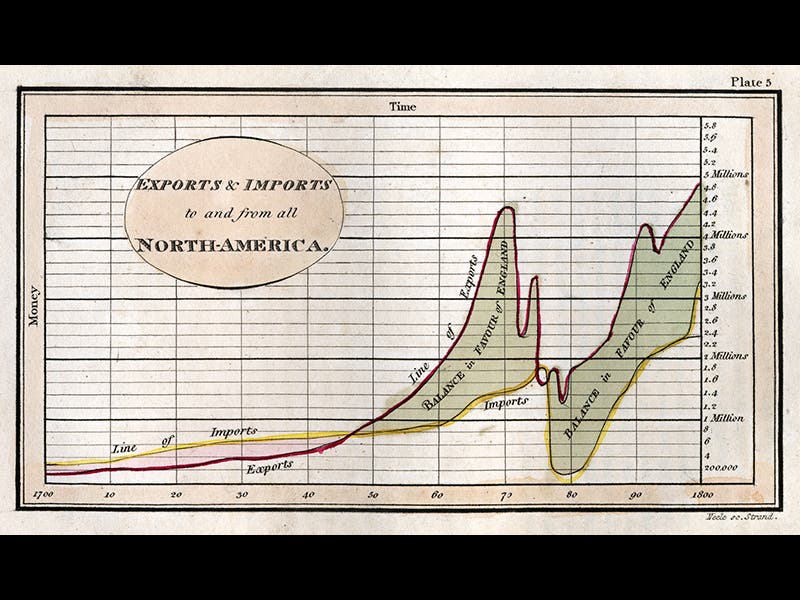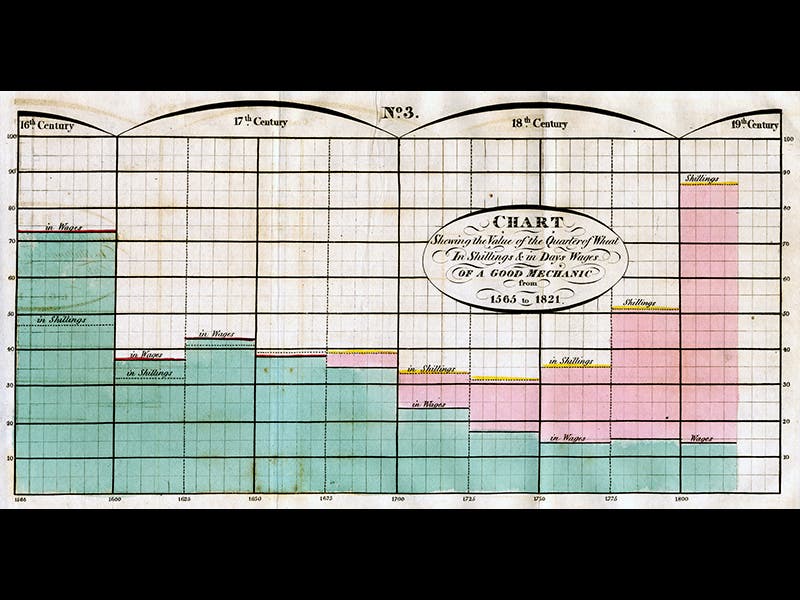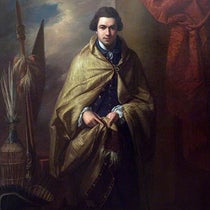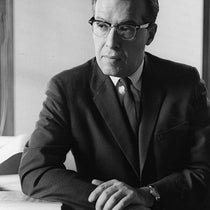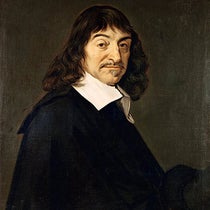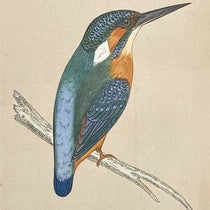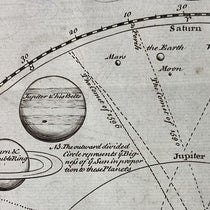Scientist of the Day - William Playfair
William Playfair, a Scottish engineer and statistician, was born Sep. 22, 1759. Playfair published two major books, The Commercial and Political Atlas (1786), and the Statistical Breviary (1801), that are very important in the history of visual graphics, since Playfair managed, all by himself, to invent: the line graph, the bar chart, the circle graph, and the pie chart. Before Playfair, the "visual display of quantitative information", to borrow the title of Edward Tufte's famous book on the subject, was extremely limited. Simple graphs comparing, for example, velocity and distance, were in common use, but other kinds of graphic charts, with only a few exceptions, are very hard to find. The beauty of Playfair's graphical inventions is that they make it very easy to grasp a vast array of quantities with a single glance.
For example, in 1786, Playfair used a time-line graph to compare England's exports and imports with Norway and Denmark over time, one wiggly line showing imports, the other indicating exports, and the area between colored in, to indicate how the balance of trade swung in England’s favor in 1760 (see first image above). A similar chart recorded trade with the colonies in America, and showed that England, in spite of the moaning of government officials, was better off after the war than before (second image). A later chart (1821) compared the price of wheat over the course of 300 years with the earning power of wages, to show that, for a working man, wheat had never been cheaper than it was at present (third image).
Playfair made the greatest series of leaps forward in the history of graphical display, yet no one in his lifetime appreciated what he had done, and he died in poverty, in 1833, not a statistical hero, but a mere statistic. We do not have any of Playfair's books in our Library, although we might now rethink whether they might be appropriate acquisitions, since many of the scientific graphics of the later 19th century are much indebted to Playfair.
Dr. William B. Ashworth, Jr., Consultant for the History of Science, Linda Hall Library and Associate Professor, Department of History, University of Missouri-Kansas City. Comments or corrections are welcome; please direct to ashworthw@umkc.edu.

